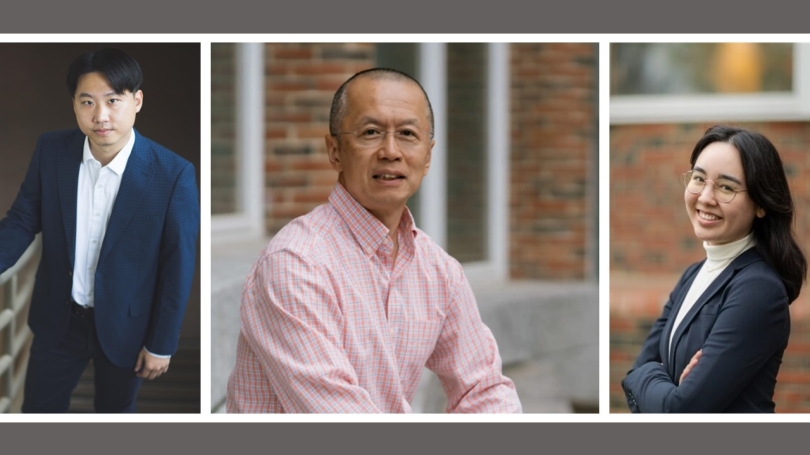
- Undergraduate
- Research
- About the Program
- News & Events
- People
Back to Top Nav
Back to Top Nav
Back to Top Nav
Back to Top Nav
Assistant Professor of Quantitative Social Science Herbert Chang, Professor of Government Yusaku Horiuchi, and QSS major Tracy Weener '26 have been collaborating on research on the 2024 Taiwanese Elections.
The three researchers write as follows:
The Taiwanese presidential election held on January 13, 2024, may be one of the most critical geopolitical events of the year, possibly being decisive for the future of Taiwan's democracy. Followed closely by Beijing and Washington, the election was a three-way race between Lai Chingte from the incumbent Democratic Progressive Party (DPP), Hou Youyi from the Kuo Ming Tang (KMT), and Ko Wenje from the Taiwan People's Party (TPP). In the end, Lai Ching-te of the DPP was elected with 40 percent of the vote.
QSS faculty and students have been busy researching the recent Taiwan election. Tracy Weener '26, Assistant Professor Herbert Chang, and Professor Yusaku Horiuchi are carrying out a project, "Conjoint Analysis of the 2024 Taiwanese Presidential Election," with a large survey experiment. The project's goal is to understand Taiwanese voters' susceptibility to misinformation, their preferences when facing trade-offs between policy and partisanship, and their general attitudes toward foreign policy. Tracy visited Taiwan in December 2023, before the election, and she spent a week engaging with local students at National Taiwan University.
Professor Chang is one of the first scholars to track the 2024 Taiwanese election with large-scale social media data. With a dataset of more than 100 million engagements, Professor Chang and Sunny Fang, an undergraduate at Barnard who is studying political science and computer science, are analyzing how Taiwanese political candidates generate support and attention on social media. A second, related study being pursued by Professor Chang focuses on a new strand of misinformation, called US-Skepticism, that attacks not specific candidates but underlying foreign relations with the United States. For this latter study, Professor Chang is using Cofacts, a dataset of misinformation aggregated by fact-checking AI bots, to identify misinformation narratives that seek to undermine US-Taiwan relations.
"While the focus of these projects is on the Taiwanese elections, the incorporated electoral themes will likely emerge in the largest election year in history," Chang says.
In contrast to prior Taiwanese elections, the 2024 election has seen the rise of viable third-party contenders, like Ko of the TPP. Research that touches on the subject of third-party candidates will continue to be part of studies of the constraints and compromises over voter choice in Taiwan.
Assistant Professor Chang will be teaching QSS 20 Modern Statistical Computing (cross-listed with PBPL 40.01) in Spring 2024. In the same quarter, Professor Horiuchi, who is a member of the QSS Steering Committee, will be teaching two sections of QSS 17 Data Visualization (cross-listed with GOVT 16).
Please see Misinformation Swirled During Taiwan's 2024 Elections for coverage on this from Dartmouth News.